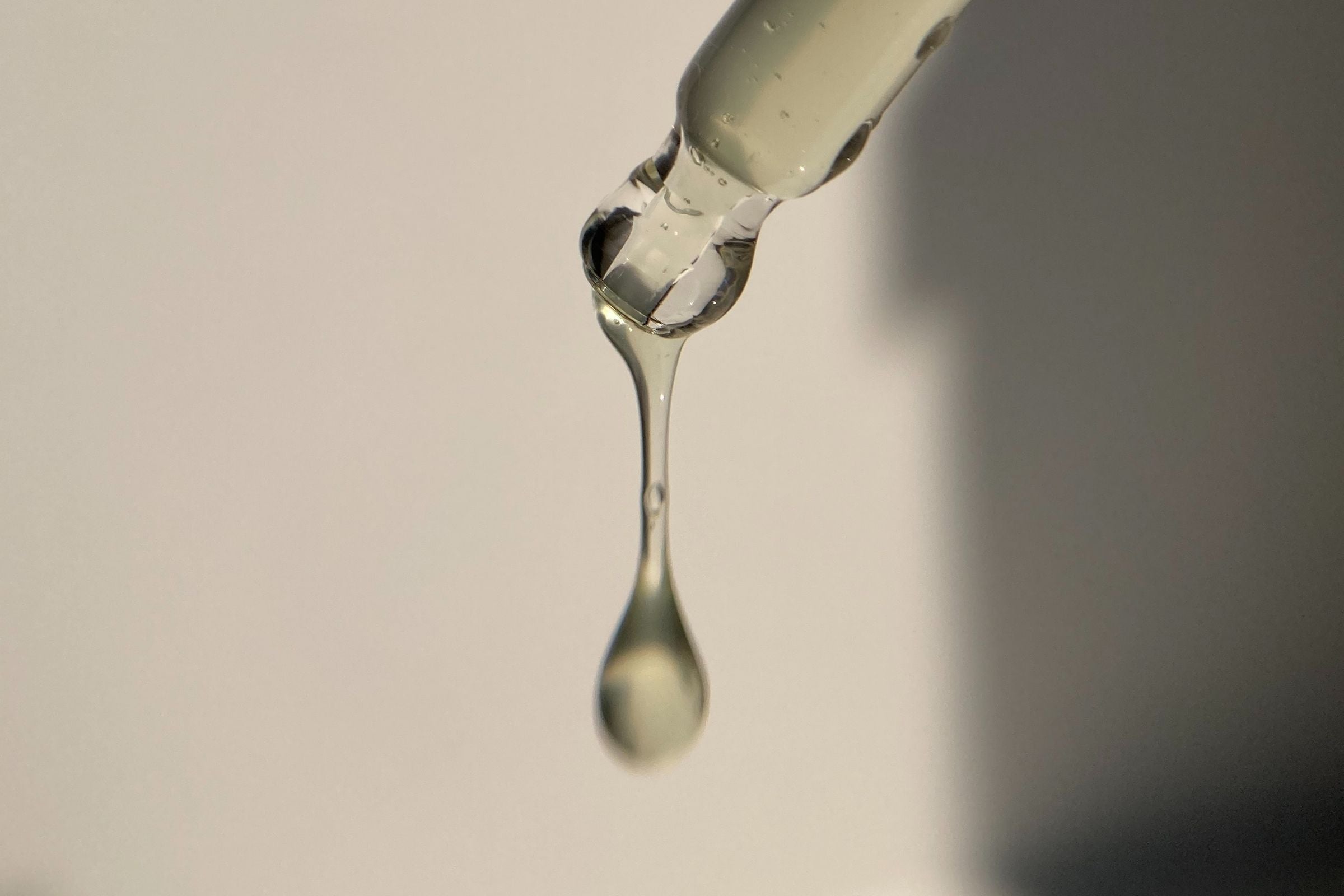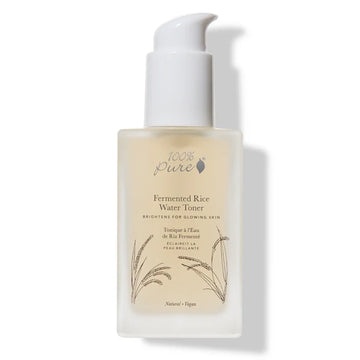Embracing the Lasting Benefits of Organic Skincare
Written by: 100% PURE ®
In recent years, a significant shift has been observed in the skincare industry, marked by a surge in the popularity of organic skincare products. This movement is not just a fleeting trend; it's a transformative journey towards a more conscious and holistic approach to beauty and wellness.
At the heart of this organic skincare revolution is a growing awareness of the impacts of ingredients not only on our skin but also on our overall health and the environment. As consumers become more informed, they are turning away from harsh chemicals and synthetic additives in favor of natural, plant-based alternatives. This transition speaks volumes about a collective desire to embrace products that are as good for the earth as they are for our skin.
In this article, we delve deeper into the world of organic skincare, exploring its lasting benefits that go beyond the surface. We aim to uncover the reasons behind its enduring appeal and how it aligns with a broader movement towards sustainable and mindful living. Through this exploration, we hope to provide insights that resonate with anyone looking to make more informed choices about their skincare regimen, understanding that what we put on our skin is as important as what we put in our bodies.
Join us as we explore the depths of organic skincare, unearthing its true essence and uncovering why it's more than just a trend—it's a lifestyle choice that reflects our values and commitment to a healthier, more sustainable future.
Definition of Organic Skincare
Organic skincare refers to beauty products formulated from organically farmed ingredients, adhering to stringent standards set by certification bodies. These standards typically mandate that the ingredients be grown without synthetic pesticides, herbicides, and genetically modified organisms (GMOs). Furthermore, organic skincare products are often free from harsh chemicals, such as parabens, sulfates, and artificial fragrances, which are commonly found in conventional skincare items.
To qualify as organic, a skincare product must contain a certain percentage of organic ingredients, usually over 70%. This threshold varies depending on the certification body, such as the USDA Organic Certification in the United States or the Soil Association in the United Kingdom. These organizations conduct rigorous checks to ensure that products labeled as organic meet their strict guidelines, thus maintaining the integrity and trustworthiness of the organic label.
The Difference Between Organic and Conventional Skincare Products
Ingredients: Organic skincare products are distinguished by their use of natural ingredients, cultivated under strict organic farming practices. These ingredients are often derived from plants and are free from harmful pesticides and chemicals. On the other hand, conventional skincare products may contain synthetic ingredients, artificial colors, and preservatives that can be harsh on the skin.
Production Processes: The production process of organic skincare is designed to be environmentally friendly and sustainable. It emphasizes minimal processing to retain the natural integrity and benefits of the ingredients. Conversely, conventional skincare production can involve extensive chemical processing, which may diminish the natural benefits of the ingredients and potentially harm the environment.
Impact on Skin Health: Organic skincare products are generally gentler and safer for the skin, especially for people with sensitive skin or allergies. The absence of harsh chemicals reduces the risk of skin irritation, allergies, and other adverse reactions. In contrast, conventional skincare products, with their chemical additives, can sometimes cause skin irritation and long-term harm to skin health.

Health Benefits for Skin
In an era where awareness about what we put on our bodies is as crucial as what we consume, organic skin care has emerged as more than a mere trend; it's a lifestyle choice reflecting a commitment to health and wellness. The allure of organic skincare primarily lies in its gentler approach, which is often synonymous with fewer adverse reactions. This is particularly vital in a world where sensitive skin is not uncommon, and the rate of skin allergies is on the rise.
Organic skincare products are formulated with natural ingredients, devoid of synthetic chemicals and harsh preservatives. This natural composition significantly reduces the risk of skin irritations and allergic reactions. For instance, the absence of artificial fragrances and colors, which are common irritants in traditional skincare products, makes organic options a safer bet for those with sensitive skin. Moreover, these products are often enriched with pure, soothing ingredients like aloe vera, chamomile, and essential oils, known for their healing and anti-inflammatory properties.
Another aspect of organic skincare is its potential to nourish the skin deeply. Unlike conventional products that offer superficial results, organic formulations work harmoniously with the skin's natural biology. They deliver essential nutrients and antioxidants that promote skin health, enhancing its ability to repair and rejuvenate. This leads to a healthier skin barrier, which is crucial in protecting against environmental stressors and maintaining hydration.
Environmental Impact
The benefits of organic skincare extend beyond personal health and delve into the realm of environmental stewardship. The production of organic skincare products is generally more sustainable andeco-friendlyr compared to their non-organic counterparts. This sustainability starts right from the sourcing of ingredients. Organic farming practices, which are used to cultivate ingredients for these products, avoid the use of harmful pesticides and chemicals. This approach not only ensures the purity of the skincare ingredients but also protects the environment from harmful agricultural runoff.
Packaging is another aspect where organic skincare often takes a greener route. Many brands in the organic sector are conscious of their environmental impact and opt for recyclable or biodegradable packaging. This reduces the carbon footprint and the accumulation of non-degradable waste in landfills. Furthermore, some companies go further by implementing refillable systems or using minimal packaging, further mitigating environmental harm.
In conclusion, the shift towards organic skincare is rooted in a deeper understanding of health and environmental well-being. It's a holistic approach that benefits not only the individual user but also the planet. As consumers become more conscious and demand transparency and sustainability, organic skincare stands out as a responsible choice that aligns with these evolving values.
Effectiveness
One of the most prevalent myths surrounding organic skincare is the belief that these products are less effective than their conventional counterparts. This misconception likely stems from the assumption that natural ingredients are inherently weaker or less potent. However, this is far from the truth.
Organic skincare products are formulated with natural ingredients that are often rich in vitamins, antioxidants, and other nutrients essential for skin health. These components work synergistically to nourish and rejuvenate the skin. For example, ingredients like organic shea butter and coconut oil are renowned for their moisturizing properties, while others like green tea extract and vitamin C offer potent antioxidant benefits.
Moreover, many organic products are free from harsh chemicals and synthetic additives, which can be detrimental to skin health over time. While conventional products may sometimes provide quicker results due to these strong chemicals, the long-term effects might not be as beneficial as those offered by organic alternatives.
Research has increasingly shown that natural ingredients can be just as effective, if not more so, in addressing various skin concerns. From anti-aging to acne treatment, organic skincare lines offer a wide range of products that cater to different needs, proving their efficacy.
Shelf Life and Storage of Organic Products
When it comes to organic skincare, another common misconception is regarding their shelf life and storage. People often believe that organic products spoil more quickly and are more challenging to store. While it's true that organic skincare products typically contain fewer preservatives than conventional products, this doesn’t necessarily mean they have a significantly shorter shelf life.
The key to maximizing the longevity of organic skincare products lies in proper storage. Most organic products should be stored in a cool, dry place away from direct sunlight. Exposure to heat and light can accelerate the degradation of natural ingredients, reducing their effectiveness. Some products might even benefit from refrigeration, especially those containing ingredients like vitamin C, which can oxidize quickly.
In terms of shelf life, while some organic products may have a slightly shorter lifespan than conventional products due to the lack of synthetic preservatives, many brands have innovated natural preservation methods that extend the shelf life significantly. These methods include using natural preservatives like vitamin E, rosemary extract, and certain essential oils, which not only help preserve the product but also add to its skin benefits.
Consumers should also pay attention to the packaging of organic skincare products. Airless pumps, dark glass bottles, and sealed tubes can help protect the product from air and light, further extending its shelf life.
Newsletter Subscribe
for more blog updates and exclusive discounts

Reading Labels and Identifying Truly Organic Products
Navigating the World of Labels: When it comes to choosing authentic organic skincare products, understanding labels is key. Look for certifications like USDA Organic or ECOCERT, which indicate strict adherence to organic standards. Be wary of misleading terms like 'natural' or 'green', as they aren't regulated and don't guarantee organic content.
Key Ingredients to Look For: Genuine organic skincare products should contain a high percentage of organic ingredients derived from plants. Avoid products with synthetic chemicals, parabens, phthalates, and artificial fragrances. Instead, look for natural oils, herbal extracts, and natural preservatives like vitamin E.
Understanding the Fine Print: Pay attention to the ingredient list. Ingredients are listed in order of their concentration, so organic components should be among the first few listed. Also, watch out for lengthy chemical names which often indicate synthetic ingredients.
Incorporating Organic Products Into Your Skincare Routine
Transitioning Gracefully: If you're new to organic skincare, start slowly. Introduce one product at a time to allow your skin to adjust and to identify any sensitivities or allergies. This gradual approach also helps determine which products work best for your skin type.
Combining for Maximum Benefit: Organic skincare products can be layered for enhanced benefits. For example, start with a gentle cleanser, followed by a toner, and then apply a moisturizer. If you're using serums or treatments, apply them before the moisturizer.
Cleanser - Rose Water Gel Cleanser: Start your routine with this gentle cleanser, perfect for removing impurities without stripping the skin's natural oils.
Toner - Fermented Rice Water Toner: Follow up with this toner to balance pH levels and prepare your skin for further treatment.
Serum - Multi-Vitamin + Antioxidants Potent PM Serum: Apply this nutrient-rich serum at night to rejuvenate and repair your skin while you sleep.
Moisturizer - Green Tea EGCG Concentrate Cream: Lock in hydration and benefit from the antioxidant properties of green tea with this daily moisturizer.
Eye Cream - Coffee Bean Caffeine Eye Cream: Finish your routine with this eye cream to reduce puffiness and brighten the under-eye area.
By carefully selecting and incorporating organic skincare products into your routine, you're not only nurturing your skin but also supporting sustainable and ethical practices in the beauty industry.
Is Organic Skincare Suitable for All Skin Types, Including Sensitive Skin?
Yes, organic skincare is generally suitable for all skin types, including sensitive skin. The natural ingredients used in organic skincare products are often gentler on the skin compared to their synthetic counterparts. These products typically avoid harsh chemicals, artificial fragrances, and preservatives, which are common irritants for sensitive skin. However, it's important to note that everyone's skin is unique. Even natural ingredients can cause reactions in some individuals. Therefore, it's always advisable to patch-test a new product before fully incorporating it into your skincare routine.
Can Organic Skincare Products Provide Anti-Aging Benefits?
Absolutely. Many organic skincare products contain natural ingredients rich in antioxidants, vitamins, and essential fatty acids, which are key components in fighting the signs of aging. Ingredients like Vitamin C, green tea, and certain oils such as rosehip and argan oil, are known for their anti-aging properties. They help reduce wrinkles, and fine lines, and promote skin elasticity. However, it's important to have realistic expectations, as the results may not be as immediate or dramatic as some synthetic anti-aging formulations.
How Can I Verify the Authenticity of Organic Skincare Products?
To verify the authenticity of organic skincare products, look for certifications from reputable organizations. Certifications such as USDA Organic, Ecocert, and COSMOS Organic are reliable indicators that a product meets stringent organic standards. These standards typically ensure a certain percentage of organic ingredients and stipulate restrictions on synthetic additives. Additionally, reading ingredient labels and researching the brand can provide further assurance about the product's organic nature.
Are Organic Skincare Products More Expensive Than Conventional Ones?
Organic skincare products can be more expensive than conventional ones. This price difference is often due to the higher cost of sourcing organic ingredients and the more complex manufacturing processes that preserve their natural integrity. However, the price range can vary significantly across different brands and products. With the growing interest in organic skincare, more affordable options are becoming available, making it a viable option for a wider range of consumers.
Can I Make Effective Organic Skincare Products at Home?
Yes, you can make effective organic skincare products at home using natural ingredients. Homemade face masks, scrubs, and moisturizers can be created with items such as honey, oatmeal, avocado, and essential oils. These homemade concoctions can be both effective and cost-efficient. However, it's crucial to do proper research and follow safe practices, as some natural ingredients might not be suitable for all skin types, and homemade products don't have the preservatives found in commercial products, limiting their shelf life.
As we conclude our exploration of organic skincare, it becomes clear that this movement is far more than a fleeting trend. Throughout our discussion in "Skin Deep: Why Organic Skincare is More Than Just a Trend," several key points have emerged, emphasizing the lasting importance and benefits of organic skincare:
Eco-Friendly and Skin-Friendly: Organic skincare, characterized by natural,sustainably sourcedd ingredients, avoids harmful chemicals, benefiting both our skin and the environment.
Holistic Wellness: These products cater to various skin types, including sensitive skin, offering deep nourishment and aligning with a holistic approach to wellness.
Prioritizing Health: By eliminating harsh chemicals, organic skincare lessens the risk of adverse reactions and long-term health issues, underscoring a commitment to overall health.
Innovative and Inclusive: The growing demand for organic skincare has led to innovative, diverse product ranges suitable for every skin type and concern.
Organic skincare goes beyond a mere trend; it's a conscious, sustainable choice for health and environmental stewardship. We encourage a shift towards these products for enhanced skin health and a positive impact on the planet.
- Tags: December-2023, Skin Care, skincare
We carefully hand-select products based on strict purity standards, and only recommend products we feel meet this criteria. 100% PURE™ may earn a small commission for products purchased through affiliate links.
The information in this article is for educational use, and not intended to substitute professional medical advice, diagnosis, or treatment and should not be used as such.














